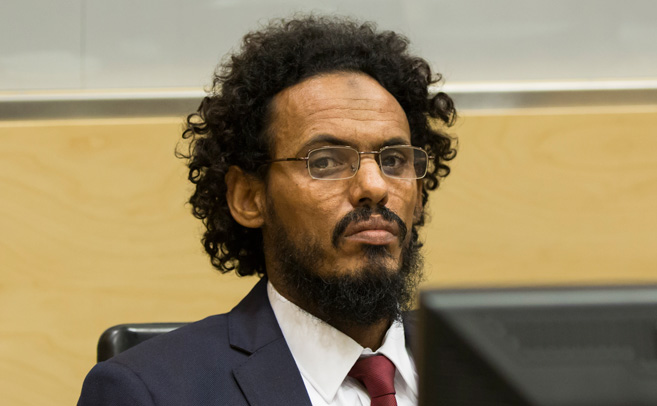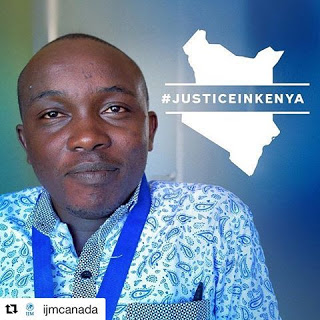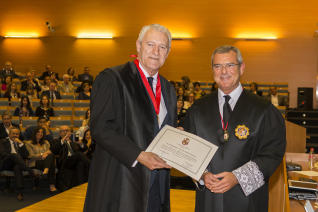Sidebar
Noticias
In Germany, in July 2016 the Federal Cabinet passed a bill to reform asset recovery in criminal law. The bill represents the biggest reform since the introduction of asset recovery in 1969. This update sets out the most important changes.
Content of reform
The reform will redesign major parts of criminal law asset recovery both substantively and procedurally. The core of the reform is the reorganisation of victim compensation. At present, the criminal authorities confiscate incriminated assets only temporarily in favour of the victims. The victims must then assert their claims in a complicated procedure after obtaining the corresponding civil instruments.
The priority principle – also known as the 'first come, first served' principle – applies in this procedure. In practice, the principle results in many victims being too late to assert their claims or deciding against it because of high costs. In future, compensation "organised by the criminal authorities" is planned. The criminal justice authorities will first confiscate the incriminated assets, and only after the criminal law judgment is legally binding will the assets be distributed to the victims.
The reform also includes multiple other substantial changes in the field of criminal asset recovery. For certain offences the reform will introduce a reversal of the burden of proof in favour of the criminal authorities, inspired by the non-conviction-based confiscation or forfeiture under US law. At present, incriminated assets must be returned to the perpetrator if the body of evidence is not fully clear. Under the reform, multiple legal concepts which have been developed by the jurisdiction will also be explicitly regulated in statute. This refers, for example, to the important questions in practice of:
the extent to which assets can be confiscated and recovered; and
how the criminal authorities should handle cases in which incriminated assets are transferred to third persons.
Practical consequences
Changes for companies often arise if they fall victim to criminal offences – for example:
investment fraud;
breach of trust; or
a transfer of company funds by employees.
Although a major goal of the reform is to simplify the asset recovery procedure for victims, whether this will succeed is questionable, especially for companies.
According to the reform, in future the criminal justice authorities will confiscate the incriminated assets and distribute them to the victims once the criminal law judgment is final. This may be a disadvantage for companies, because judgments in complicated white-collar criminal proceedings will often not be legally binding for many years. Therefore, as a consequence of the new regulations, companies may not be compensated until long after the pecuniary loss occurred. Although under existing law the pursuit of asset recovery interests is more complicated and more expensive, companies also have significantly more influence and leeway in order to assert their asset recovery claims.
In contrast to the cases in which a company is the victim of a criminal offence, employees also often commit criminal offences in favour of the company – for example, bribery, tax fraud or cutting costs by deferring environmental measures. In these cases the employees' offences are attributed to the company and the illegally obtained assets will be confiscated and the company must defend against the asset recovery measures. In such cases, the changes to be introduced by the reform could affect companies disadvantageously since the asset recovery regulations will be extended and tightened.
Last Friday in Kenya, appeared lifeless body attorney Willie Kimani. We cannot allow lawyers do not have the freedom to carry out their work.
Three Kenyan police officers have appeared in court over the murder of a human rights lawyer, whose body was found on Friday after he went missing.
Willie Kimani disappeared after lodging a complaint against a police officer on behalf of a client, who was also killed, along with their driver.
The Law Society of Kenya has called on all lawyers to boycott courts this week, while nationwide protests have been organised.
The three officers have not commented.
A judge ordered that they be held in custody for two weeks while investigations are carried out. They were not charged as we initially reported.
Africa Live: More on this and other news stories
All court cases that were due to be heard this week will now be adjourned until lawyers return to work after the boycott, reports the BBC's Ferdinand Omondi in Nairobi.
The killings have sparked outrage in Kenya and many have blamed the police force for a series of extrajudicial killings in recent years.
The hashtag #StopExtrajudicialKillings gained popularity on social media as people gathered to take part in protests around the country.
A joint statement by 34 Kenyan and international human rights organisations condemned the killings, reports the AFP news agency.
"These extrajudicial killings are a chilling reminder that the hard-won right to seek justice for human rights violations is under renewed attack," said Muthoni Wanyeki from Amnesty International.
Government spokesman Eric Kiraithe told the BBC's Newsday programme there were no "death squads" within the police force and that allegations of officers committing crimes would be fully investigated.
Kenyan security forces carried out 25 extrajudicial killing between 2013 and 2015, Kenya's official rights body said.
However, non-governmental watchdog Independent Medico-Legal Unit (IMLU) says the police killed 97 people in 2015 alone.
From the BPI-ICB, we show our sincere condolences!!
Over 50 years it took to reach one of the most anticipated news for the South American continent, and citizens of Colombia.
The country's government and opposition groups finally put an end to the armed conflict that has caused the death of a figure close to 220,000 deaths.
We would like to highlight, amongst many institutions and associations, the work of ACADEHUM, the Colombian Association of Defense Lawyers for the Human Rights (Asociación Colombiana de Abogados Defensores de Derechos Humanos) that has worked for the defense of Human Rights conducting different missions in Colombia. These missions have been a way to articulate a form of specific support to confront and improve the situation of danger that many lawyers were experiencing in the area of the defense of the Human Rights as well as other collectives of defense.
The Caravana de Juristas (Jurists Caravan) was created in 2008 after ACADEHUM requested to the international community of lawyers to develop a support and a twinning program with lawyers working on human rights in Colombia. Since then, four missions have been organized in Colombia in which many high level delegations are involved. The first mission took place in August of 2008 and was carried out by a delegation composed by 70 lawyers from Europe and the Americas. The following tasks were conducted in 2010, 2012 and 2014 with the active participation of more than 200 delegates.
It is good news for everyone, and from the BPI-ICB ICB we send all our support and our heartfelt congratulations to Colombia and Colombians.
Du BPI nous félicitons tous les avocats français et tous les citoyens française en le jour de la fête nationale de la France.
@bpi_icb.com
El pasado viernes 13 de Mayo, Francisco Puchol, miembro número 100686 del Colegio de Abogados Penal Internacional, recibió, la Cruz al Merito en el servicio de la Abogacía por parte del Pleno del Consejo.
El acto se llevó a cabo en el Salón de Actos de la Ciudad de la Justicia Valenciana.
Francisco, ha recibido este reconocimiento por su impecable trayectoria como abogado, especializado en materias civil y mercantil, así como Arbitro y Mediador. Con esta medalla, el BPI-ICB-CAPI sigue creciendo gracias a sus miembros.
Muchas felicidades Paco!!










